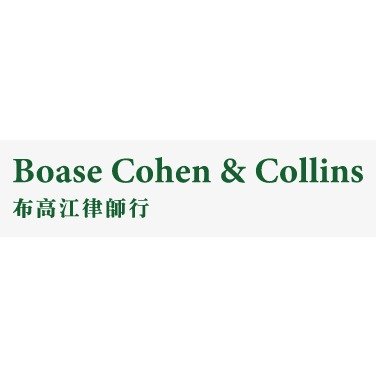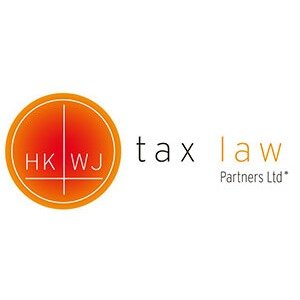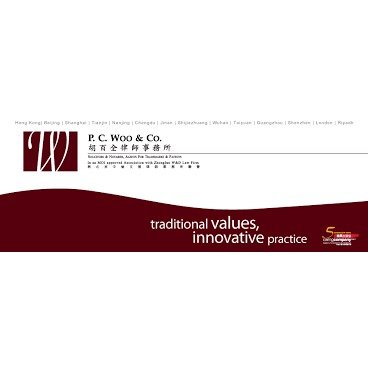Best Restructuring & Insolvency Lawyers in Hong Kong
Share your needs with us, get contacted by law firms.
Free. Takes 2 min.
Or refine your search by selecting a city:
List of the best lawyers in Hong Kong
Hong Kong Restructuring & Insolvency Legal Articles
Browse our 1 legal article about Restructuring & Insolvency in Hong Kong written by expert lawyers.
- Navigating Hong Kong-Mainland China Cross-Border Insolvency
- The mutual recognition framework allows Hong Kong liquidators to apply for judicial assistance to manage distressed assets in Mainland China. The process relies on the 2021 Record of Meeting between the Supreme People's Court and the Hong Kong Government. Recognition is currently restricted to three designated pilot areas: Shanghai, Xiamen,... Read more →
About Restructuring & Insolvency Law in Hong Kong
Restructuring and insolvency law in Hong Kong refers to the legal processes and frameworks that come into play when individuals or companies are unable to pay their debts as they fall due. In such circumstances, Hong Kong law offers several mechanisms to either allow a business or individual to reorganise their debts and operations (restructuring) or to wind up their affairs in an orderly manner (insolvency). The aim of these laws is to balance the interests of creditors, debtors, employees, and other stakeholders, while providing predictable and effective solutions for financial distress.
Why You May Need a Lawyer
There are various scenarios where seeking professional legal advice is crucial in matters of restructuring and insolvency. Some common situations include:
- Your company is facing cash flow difficulties and you are unsure how to proceed.
- You have received a statutory demand or winding-up petition from a creditor.
- You wish to explore options for restructuring your debts.
- You are a creditor seeking to recover money from a financially distressed debtor.
- You are a director worried about your personal liability due to your company’s insolvency.
- You wish to buy assets from a company that is being wound up or restructured.
- You are an employee concerned about your rights in an insolvency situation.
A lawyer can explain your rights and obligations, guide you through the complex legal processes, and help you minimise risks or losses.
Local Laws Overview
Hong Kong’s framework for restructuring and insolvency is primarily governed by the Companies (Winding Up and Miscellaneous Provisions) Ordinance (Cap. 32), the Bankruptcy Ordinance (Cap. 6) for individuals, and relevant case law. Key features include:
- Corporate Insolvency: Companies that cannot pay their debts may be wound up either voluntarily or by court order. A liquidator is appointed to collect assets, settle debts, and distribute any remaining funds.
- Individual Insolvency: Individuals who are unable to pay their debts may be subject to bankruptcy proceedings. An official receiver manages the bankrupt estate and looks after distribution to creditors.
- Restructuring Mechanisms: Schemes of arrangement allow companies and creditors to reach a court-sanctioned compromise. There is an increasing focus on corporate rescue procedures, although a formal corporate rescue law has not yet been fully implemented in Hong Kong.
- Provisional Liquidation: Provisional liquidators may be appointed to preserve company assets or facilitate a restructuring while the winding-up process is ongoing.
- Cross-Border Issues: Hong Kong courts can recognise and assist with overseas insolvency proceedings in cases with international elements.
Frequently Asked Questions
What is the difference between restructuring and insolvency?
Restructuring generally involves reorganising a company’s debts and operations to allow it to continue trading, while insolvency is the legal process when a person or company cannot pay its debts and may involve bankruptcy or liquidation.
When can a company be wound up in Hong Kong?
A company may be wound up if it is unable to pay its debts, if members decide to wind it up voluntarily, or on other statutory grounds such as if it is just and equitable to do so.
What happens during liquidation?
During liquidation, a liquidator takes control of the company’s assets, pays off creditors as far as possible, and distributes any surplus to shareholders before dissolving the company.
How does personal bankruptcy work?
An individual can be made bankrupt if they owe at least HKD 10,000 and are unable to pay. The Official Receiver or a trustee manages the bankrupt’s estate and distributes assets to creditors.
Can a Hong Kong court recognise foreign insolvency proceedings?
Yes, Hong Kong courts have powers to recognise and assist foreign insolvency proceedings under certain conditions, especially where there is a substantial connection to Hong Kong.
What is a scheme of arrangement?
A scheme of arrangement is a court-supervised process in which a company and its creditors or shareholders agree to restructure the company’s debts or ownership, subject to approval by requisite majorities and the court.
Are directors personally liable for a company’s debts?
Generally, directors are not personally liable, but may become so if they have engaged in wrongful trading, fraudulent acts, or breached statutory duties.
Do employees have any priority in insolvency?
Hong Kong law gives certain employee-related claims, like unpaid wages and severance pay, preferential status in a liquidation or bankruptcy.
What should I do if my company receives a winding-up petition?
You should seek legal advice immediately to assess your options, respond appropriately in court, and try to negotiate a settlement or restructure debts if possible.
Can I start a new company after bankruptcy?
Once discharged from bankruptcy, you are generally free to start or manage a new company, unless otherwise restricted by a court order.
Additional Resources
The following resources and organisations can provide help and further information on restructuring and insolvency in Hong Kong:
- Official Receiver’s Office (ORO) - Government body overseeing bankruptcy and winding-up matters
- Hong Kong Institute of Certified Public Accountants (HKICPA) - Professional body for insolvency practitioners
- Hong Kong Bar Association - Information on finding barristers specialising in insolvency
- The Law Society of Hong Kong - Directory of solicitors including those who practice in restructuring and insolvency
- Community legal advice centres for general guidance
Next Steps
If you are facing or anticipating financial distress or insolvency, it is important to act promptly. Consider gathering all your relevant financial documents, making notes of your creditors and outstanding debts, and seeking professional advice. Contact a qualified lawyer or insolvency practitioner with experience in Hong Kong restructuring and insolvency matters. Early legal guidance can help you understand your options, safeguard your rights, and potentially avoid more serious consequences down the line.
Be proactive, stay informed, and do not hesitate to reach out to professionals or relevant authorities for support.
Lawzana helps you find the best lawyers and law firms in Hong Kong through a curated and pre-screened list of qualified legal professionals. Our platform offers rankings and detailed profiles of attorneys and law firms, allowing you to compare based on practice areas, including Restructuring & Insolvency, experience, and client feedback.
Each profile includes a description of the firm's areas of practice, client reviews, team members and partners, year of establishment, spoken languages, office locations, contact information, social media presence, and any published articles or resources. Most firms on our platform speak English and are experienced in both local and international legal matters.
Get a quote from top-rated law firms in Hong Kong — quickly, securely, and without unnecessary hassle.
Disclaimer:
The information provided on this page is for general informational purposes only and does not constitute legal advice. While we strive to ensure the accuracy and relevance of the content, legal information may change over time, and interpretations of the law can vary. You should always consult with a qualified legal professional for advice specific to your situation.
We disclaim all liability for actions taken or not taken based on the content of this page. If you believe any information is incorrect or outdated, please contact us, and we will review and update it where appropriate.
Browse restructuring & insolvency law firms by city in Hong Kong
Refine your search by selecting a city.
















